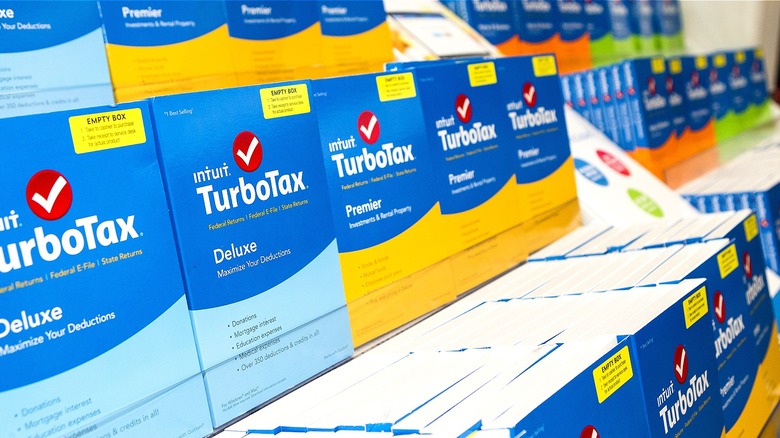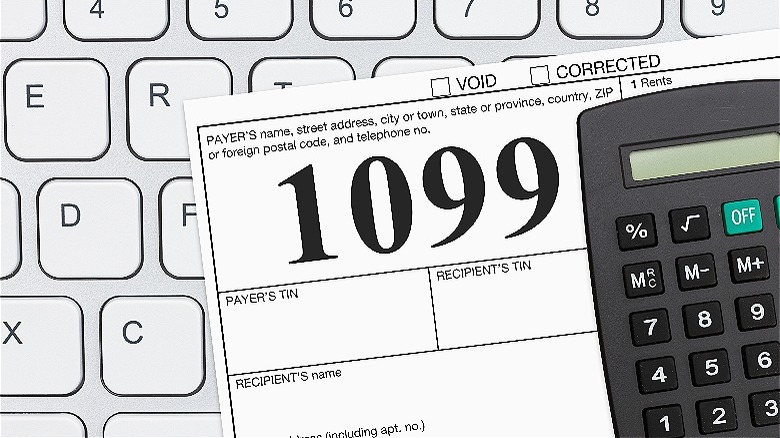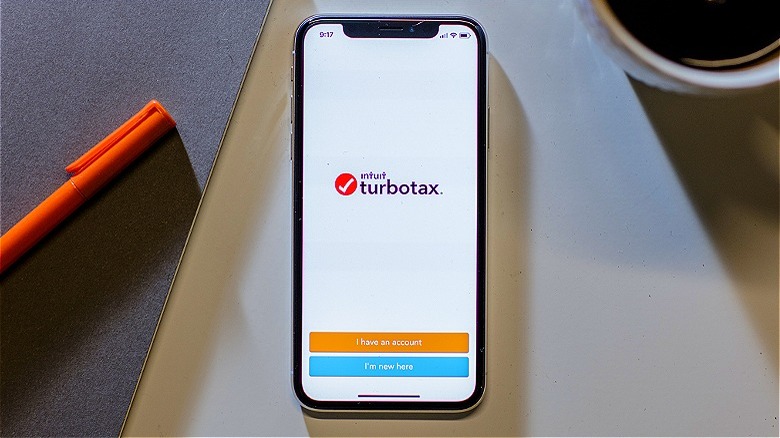Is TurboTax Premium Actually Worth The Price?
As the deadline to file your income taxes approaches, perhaps you're struggling with the decision of whether a free do-it-yourself filing service is sufficient. Or if its worth paying for an upgrade to sniff out the maximum deductions. As it turns out, the answer has a lot to do with the source(s) of your income and the complexity of your personal situation.
Much like the IRS itself makes subtle changes to the U.S. tax code periodically, TurboTax recently streamlined two of its extra-cost packages into a single bucket. That is, the previous Self-Employed package (self-explanatory) and the Premier package targeting investors are now merged into a single package called TurboTax Premium. For the record, TurboTax does continue to offer a Free Edition, but it's fairly limited in capability and only suitable for basic tax situations. Still, about 37% of Americans will qualify for the free version of TurboTax.
If you're in that uncomplicated group for which the free version is sufficient, that's great news for you. Nonetheless, TurboTax will still try to squeeze some revenue out of free users with rampant upselling during the filing process, but all can be declined. However, taxpayers who wish to itemize deductions like mortgage interest, have income from a freelance gig or side hustle, need to report a capital gain, or a whole plethora of other circumstances will need a more powerful version of the iconic tax software.
TurboTax mandates Premium for some income sources
A stopgap measure between Free Edition and Premium for some folks could be TurboTax's Deluxe package, which covers credits and deductions that are excluded from the basic free plan. Examples of these types situations might include unemployment income, child care expenses, and/or significant contributions to charity. TurboTax's Deluxe plan costs $69 plus an extra $59 for state filing, in the event that your state charges income tax.
However, for self-employed taxpayers, such as freelancers and small business owners, who want to maximize their deductions, Premium is the best — and only — option in the TurboTax stable. Ditto for investors with capital gains (or losses) from stocks, ETFs, and cryptocurrency, as well as folks with real estate income. TurboTax Premium costs $129 for federal filing, plus $59 if your state requires a return. Note that discounts and coupons offering a slight savings are sometimes available online, so it's worth checking around.
Though all levels of TurboTax offer support in the instance of an audit, this perk can be particularly valuable for freelancers and other self-employed types who may face increased IRS scrutiny. Finally, small businesses that use QuickBooks accounting software will find it easy to import their financial information into TurboTax, which can make filing easier.
TurboTax Premium is good, but pricey
TurboTax is one the oldest names in the do-it-yourself tax preparation industry and as such, the software captured 73% of that market as of May 2021. Indeed, TurboTax has a reputation as being easy to use because of an intuitive question-and-answer format that's not unlike talking to a human tax preparer. And if all else fails, you can speak to an actual human for assistance, though for an additional charge.
The cost catch is that TurboTax's provenance and convenience does come at a steep price if your personal requirements exceed the limitations of the free version. In fact, TurboTax is one of the most expensive amongst its many competitors. That said, your time is valuable, too, and can probably be spent more effectively than mired in filing income tax returns. If you're curious about TurboTax's said competitors, Money Digest recently compared TurboTax with its archenemy H&R Block.
In any case, if you're woefully unprepared to submit your return as the deadline approaches, be sure to file for an extension. Though you'll still have to estimate and pay any amount of taxes owed by the usual mid-April filing date, you'll have until October 15 to get your actual tax return in order. Tardy filers who are expecting a refund need not pay anything, merely file the IRS Form 4868 by tax day, which is typically April 15 unless that date falls on a weekend or a state holiday.


